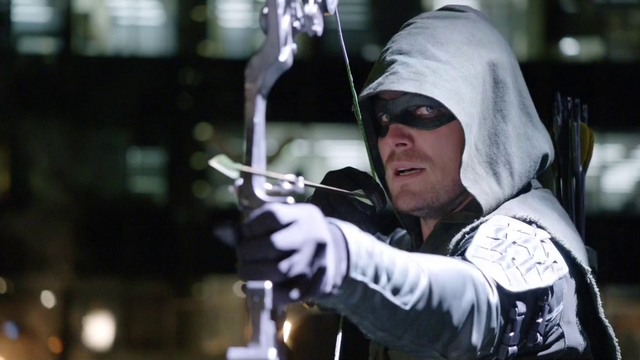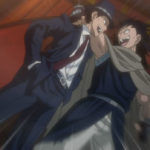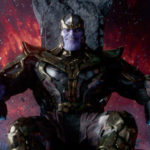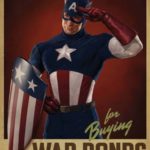Should Heroes Be Good Role Models?
A story is nothing without a solid hero to carry it.
They’re the ones we relate to most closely. We cheer for them and expect them to accomplish great things.
Because of this attention, should they act as positive role models, or can they display a darker, more disturbed side without turning people off or influencing the reader in a negative way?
As a hero, what should their role be?
The Good and the Bad
If we’re talking about heroes who are also good role models, it’s hard to beat Captain America. He’s loyal, honest, and courageous, all marks of a hero. He doesn’t run around with various girls like Tony Stark, and he always stands up for what’s right.
On the other side of the spectrum, we have Oliver Queen, aka Arrow. Oliver fights crime and works to save his corrupt city. He loves his family and cares about his friends, enough to lie in order to keep them safe.

Image from arrow.wiki.com
But let’s face it. He’s not a model of morality. Cheating on his girlfriend with her sister. Playing the hypocrite with his family—especially his mother. Getting involved with practically every girl he meets.
This contrast is fascinating, but it begs the question, “Is he someone we can admire or someone we should despise?”
Which brings us back to the original question. Before I answer it, let me say that fiction has undergone a drastic change. In the old days, heroes were typically paragons of virtue, exhibiting traits every parent would want their kid to imitate.
Not so, anymore.
Anti-heroes have always been around, but they’re more popular than ever. They are the new heroes. The guys (or gals) who aren’t squeaky clean, who sometimes do bad things for the wrong reasons, who give in to temptation, who are jerks or killers.
- Tony Stark (and his father Howard)
- Jason Bourne
- Han Solo
These characters all have significant flaws, but they’re still classified in the “good-guy” category because they fight the villain.
Heroes as Role Models: Yes or No?
Reasons heroes should be role models:
- As the hero, they represent what is admirable and praiseworthy when compared to the villain. The distinction between hero and villain is a picture of good vs. evil.
- Readers form connections with the characters, so having an upright hero to inspire us is always a good thing.
- In our corrupted state, we always admire and love those who do the right things for the right reasons.
Reasons heroes shouldn’t only function role models:
- Role model usually connotes someone who regularly displays worthy traits, the righteous do-gooder everyone should imitate. That forces heroes into being boring and stale because as role models, they should never exhibit the darker side of human nature.
- No one wants to read about a goody-two-shoes who never does anything wrong—we want someone with flaws, someone we can relate to.
- A hero who only serves as a role model through their flawless behavior doesn’t represent real life.
Heroes Shouldn’t ONLY Be Role Models
Heroes can and should exhibit good qualities such as courage, honesty, loyalty, and humility. After all, that’s why they’re not the villains.
But they also need to be the occasional bad boy. They need to turn into the black Spiderman jerk or be the self-centered Asgardian god.
Why? Because it’s a reflection of the reality of the world we live in.
No one is even close to perfect, and in order to relate to characters, we need to find that common ground—the balance where they act as real humans do. Which includes making mistakes and struggling with weaknesses in their character.
No one’s actions are constantly black or white, and if we reduce heroes to merely being “good role models,” we risk boxing them in to something they shouldn’t—and realistically can’t—be.
So the answer is, yes, heroes should be good role models, but not to the exclusion of mistakes, flaws, and struggles that make them human. Their primary purpose shouldn’t be to act as an upstanding person to emulate.
On the other side, we shouldn’t reject characters who habitually display less-than-honorable traits. Their flaws don’t dismiss them from being on the right side. If that were true, we all would be the villain’s underlings.
What do you think? Should heroes always be good, or can they have vices and still be considered a hero?
*This post appeared in original form at zacharytotah.com in March 2015.










































